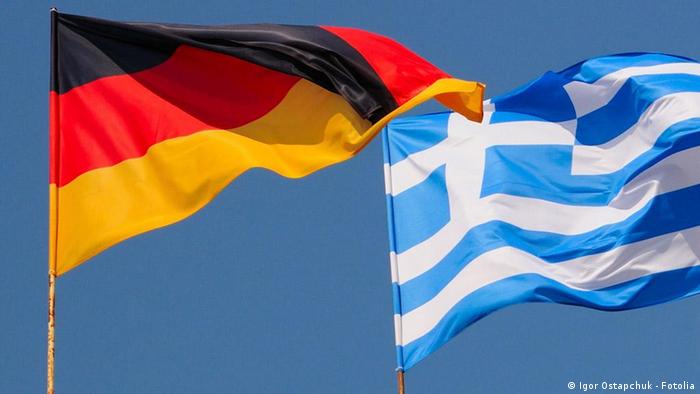After years of absence, German political foundations are returning to Greece. Their aim is to help both with the economic crisis and the increasingly strained Greco-German relationship.
During the early 1990s, German political foundations opened offices in eastern and central Europe. They wanted to help create democracy, civil society and support the transformation process in countries like Bulgaria, Romania or the Baltic states. As it was the same time Berlin had cut funding for the foundations, the groups had to reduce their involvement in other countries to make ends meet.
By 2005, the Friedrich Naumann Foundation, associated with the free market liberal Free Democratic Party, the Konrad Adenauer Foundation, associated with the center-right conservative Christian Democrats, and the Friedrich Ebert Foundation, associated with the center-left Social Democrats, all closed their offices in Athens. Greece was, after all, seen as a stable democracy and a solid member of the European Union.
Improving Greco-German relations

Christos Katsioulis will head the Friedrich Erbert Foundation
But the debt crisis has not only brought Greece into financial troubles: it also led to political instability, an alienation between the government and citizens and growing tension in relations between Athens and Berlin. That's this situation that led Germany's political foundations to pick up their work in Greece again.
"It's become apparent that the Greco-German relations are not in the best possible shape, that the communication with each other is not as it should be - and neither is the communication about each other," said Christos Katsioulis of the new Athens office of the Friedrich Ebert Foundation. His efforts will be focusing in particular to help Greek unions and conduct a study on how to combat unemployment.
He warned that having Europe as a common goal has somewhat shifted out of focus in Greece and Germany. In order to counter that development, the German Foreign Ministry has some 5 million euros ($6.2 million) that it will use to fund the country's six political foundations, each of which is affiliated with a political party, over the next three years.
Funded by the state but still independent
The government-funded work is to remain within the framework of the foreign policy guidelines of the German government - the foundations, however, are not an extended arm of Berlin.
That means that they can act even against the explicit wishes of Berlin: for instance when in the past they staged event to support Tibet or Iranian opposition activists. Although the foundations inform German diplomats about their programs, the politicians normally don't interfere with the foundations' actions - if only to avoid the public criticism Berlin would suffer if they do so.
Different angles
Human rights, the rule of law but also the support of cooperatives are at the heart of the liberal Friedrich Naumann Foundation, which will coordinate its work in Greece from its Brussels office. The Hanns Seidel Foundation, associated with the conservative Christian Social Union, focuses particularly on administration, education and professional development as well as on getting management skills to small and middle-sized companies.
Both the Seidel Foundation and the Rosa Luxemburg Foundation, associated with the Left party, plan to open new Athens offices in the autumn and to staff with local specialists. The resurgence of right-wing extremism, problems with migration and the widening gap between the rich and the poor will all be in the focus of the Luxemburg Foundation.
"Understanding Greece"

Olga Drosou leads the Heinrich Böll Foundation in Thessaloniki
The Heinrich Böll Foundation, tied to the Greens, wants to work with civil society issues and environmental concerns. "We have plenty of suggestions for modernizing the Greek economy, for creating jobs and new opportunities for the country," explained the head of the Athens office, Olga Drosou. For instance, the foundation wants to fund studies and projects so that Greek islands can get all their energy needs from renewable sources.
The work of the foundations will though not be limited to Greece only, said Susanna Vogt of the Konrad Adenauer Foundation. There are also plans for scholarships so that Greek students can come to Germany universities.
At the same time, she said she believes it's important to be present in Greece "to understand the country." And the Adenauer Foundation seeks to improve communication both ways: so that also in Germany, there'll be a better picture of what's happening in Greece. DW DE
- Date 19.08.2012
- Author Panagiotis Kouparanis / ai
- Editor Sean Sinico


No comments:
Post a Comment